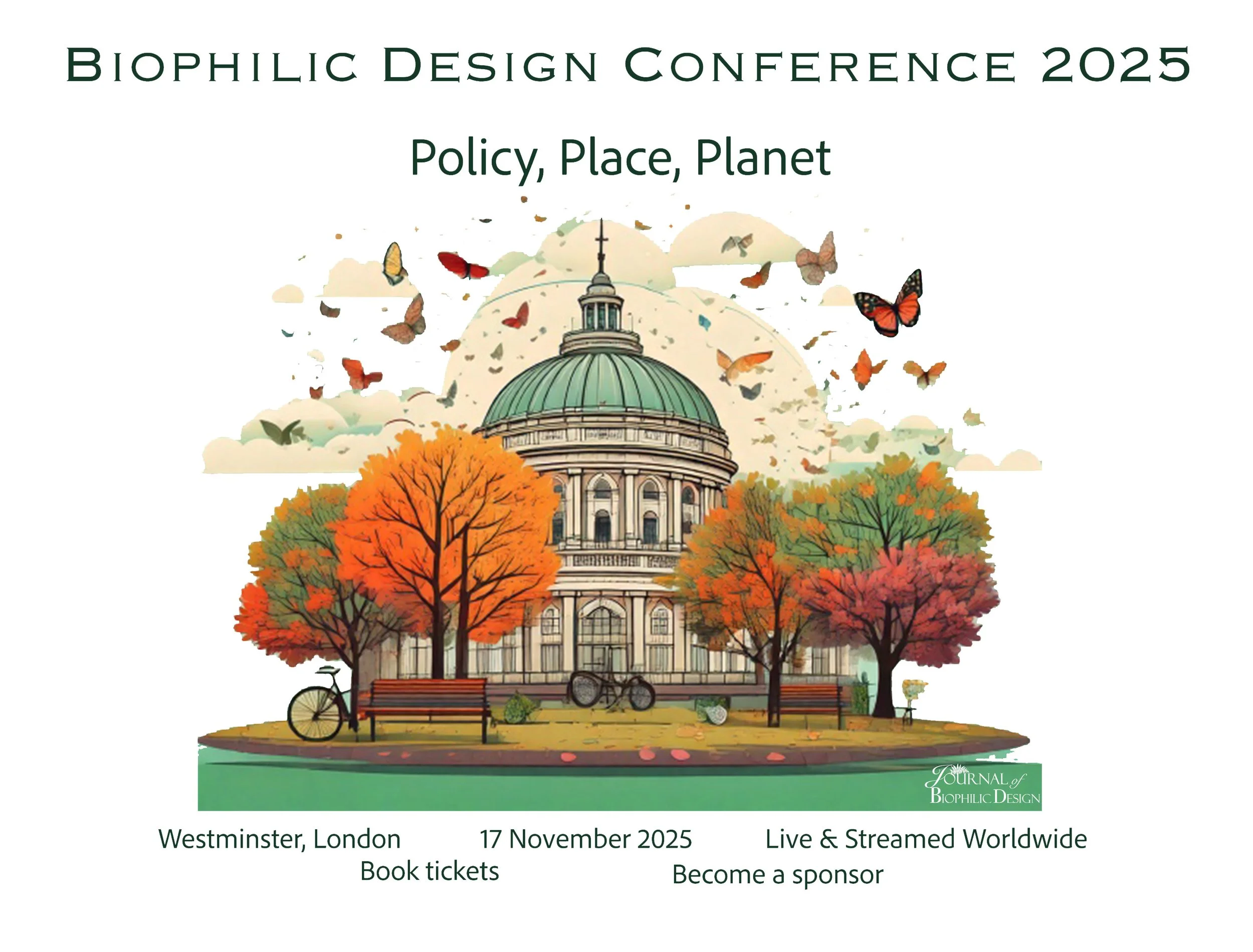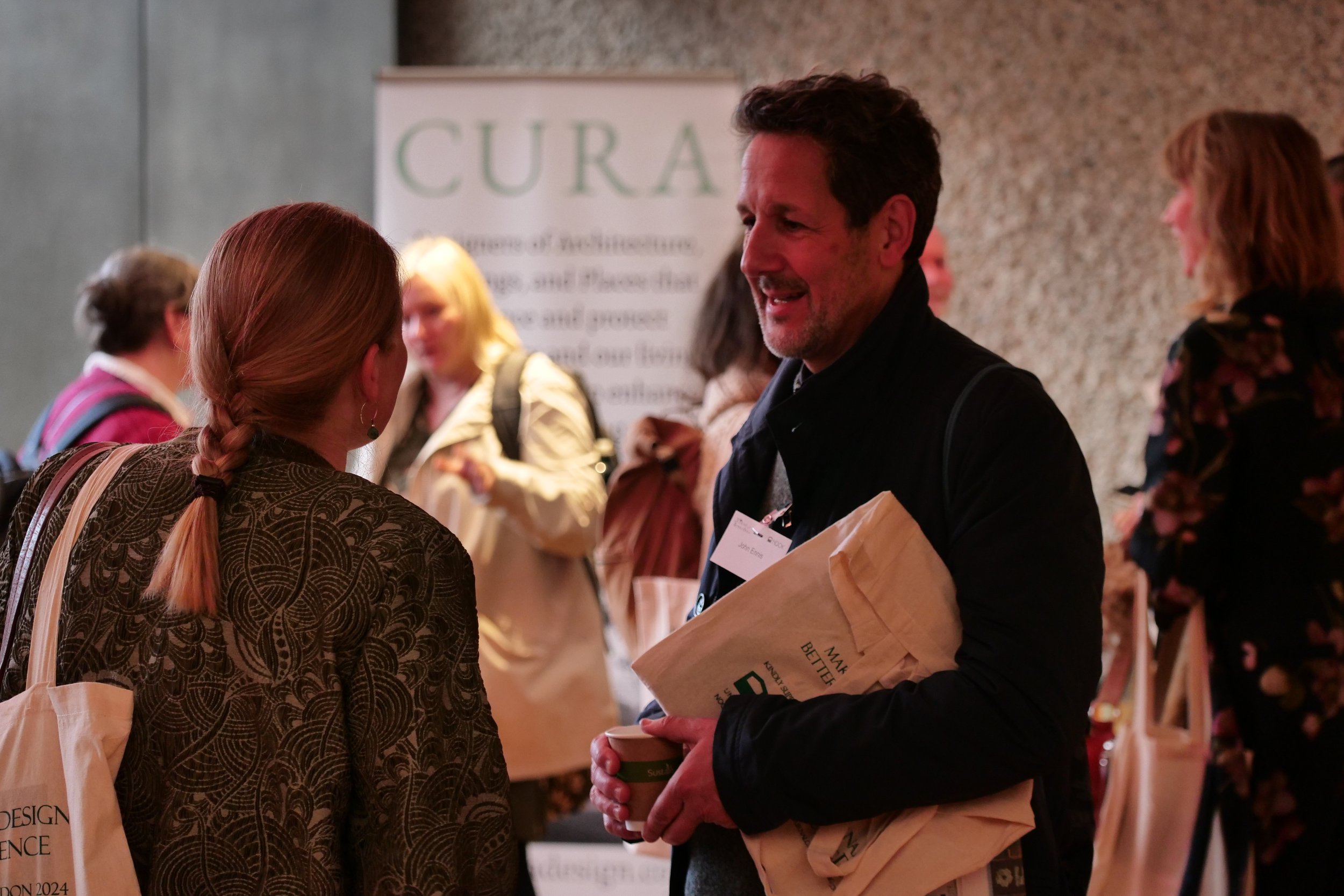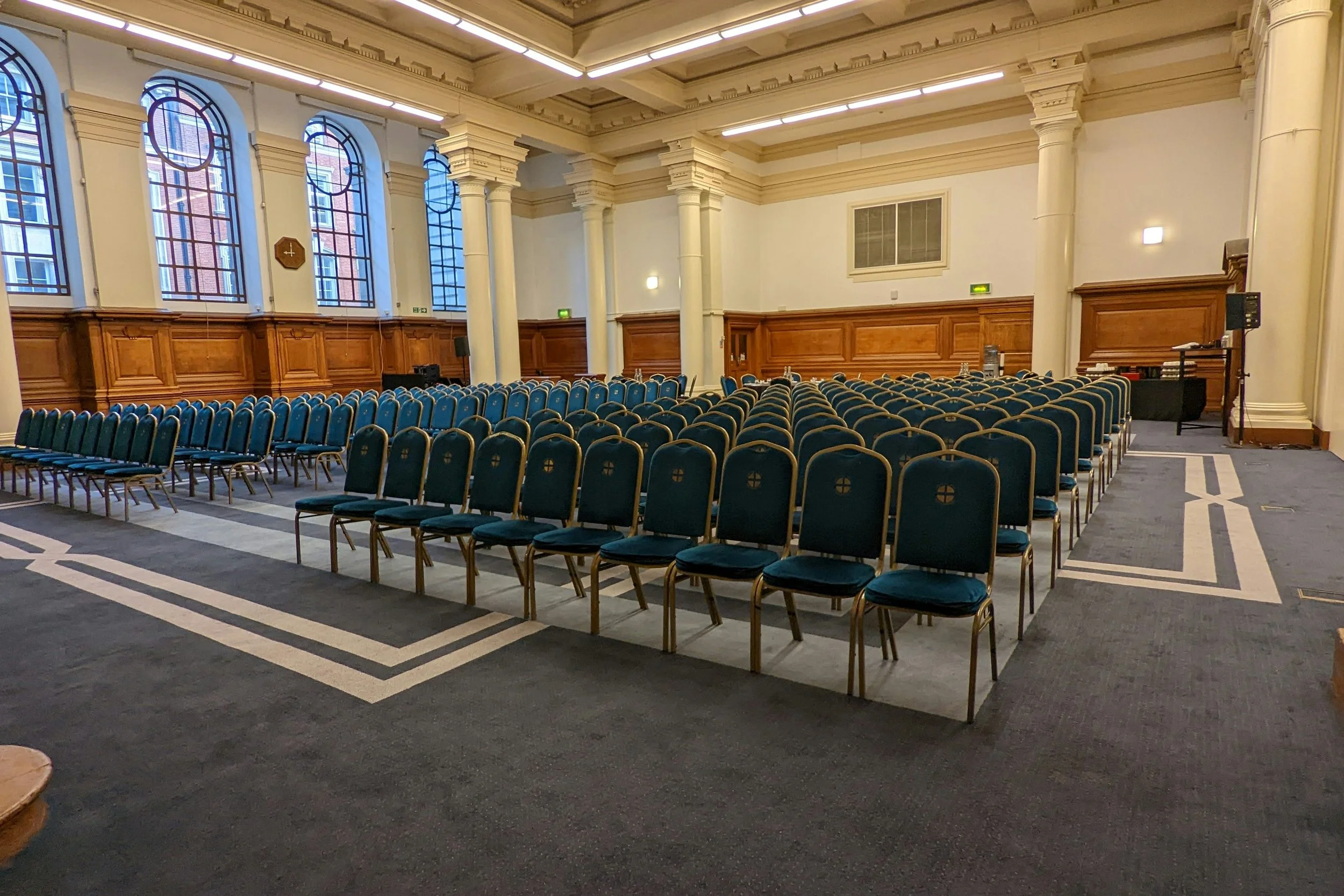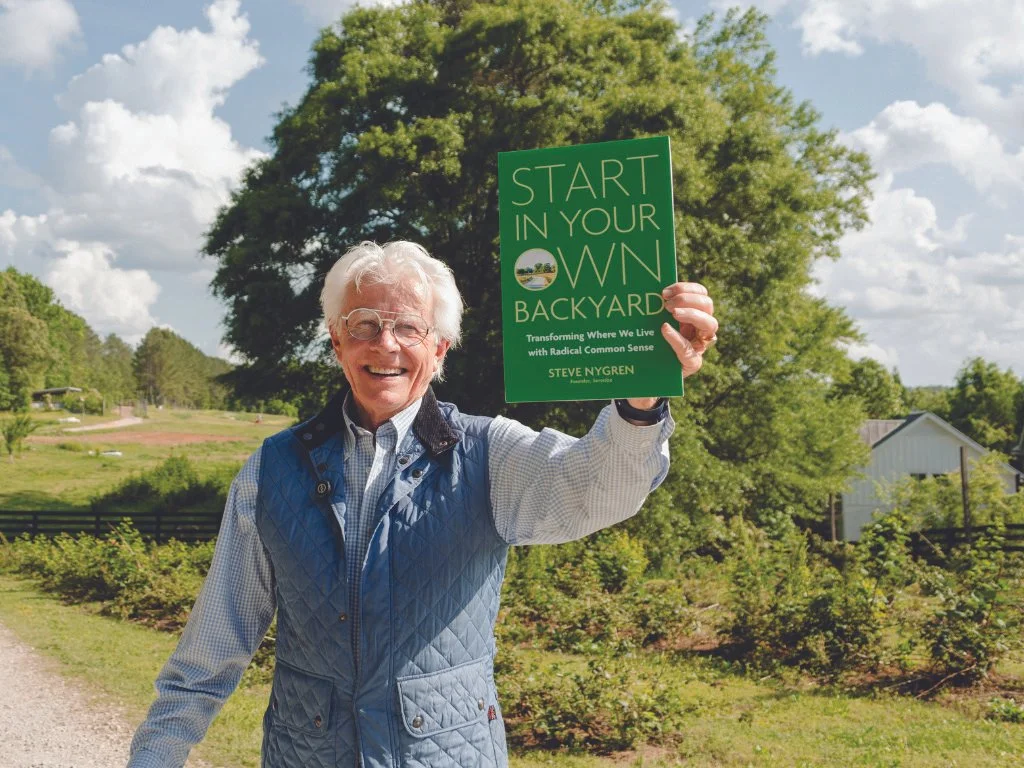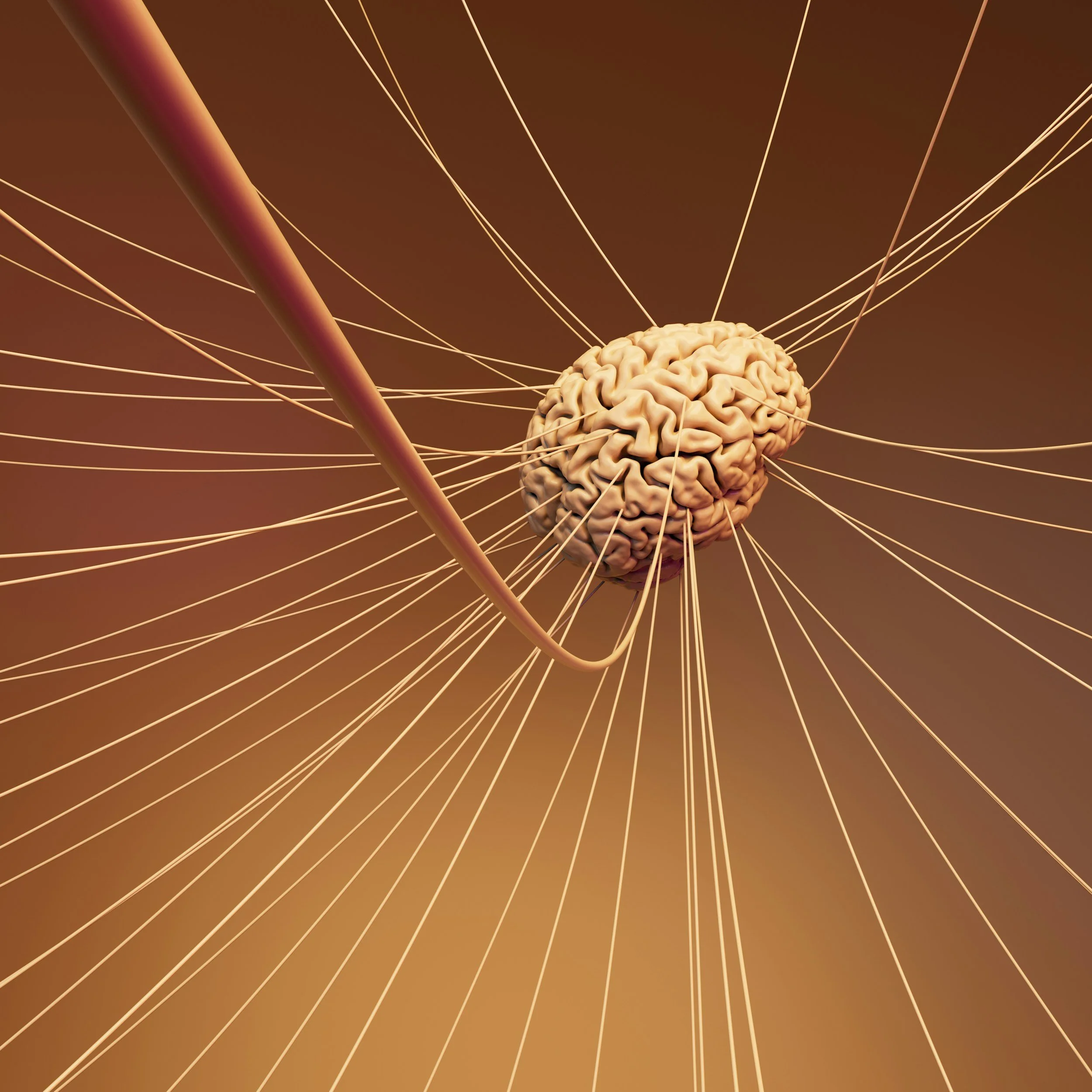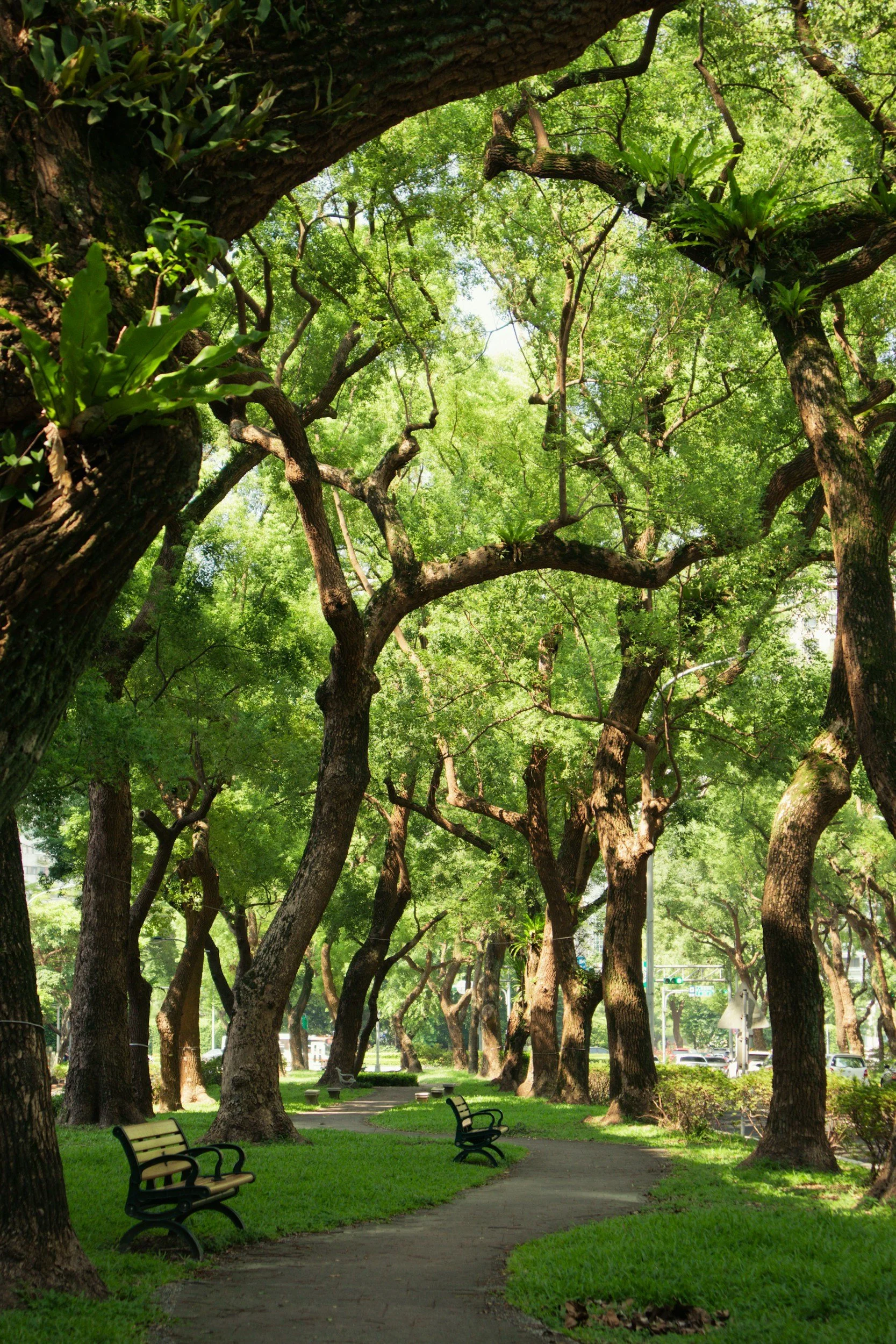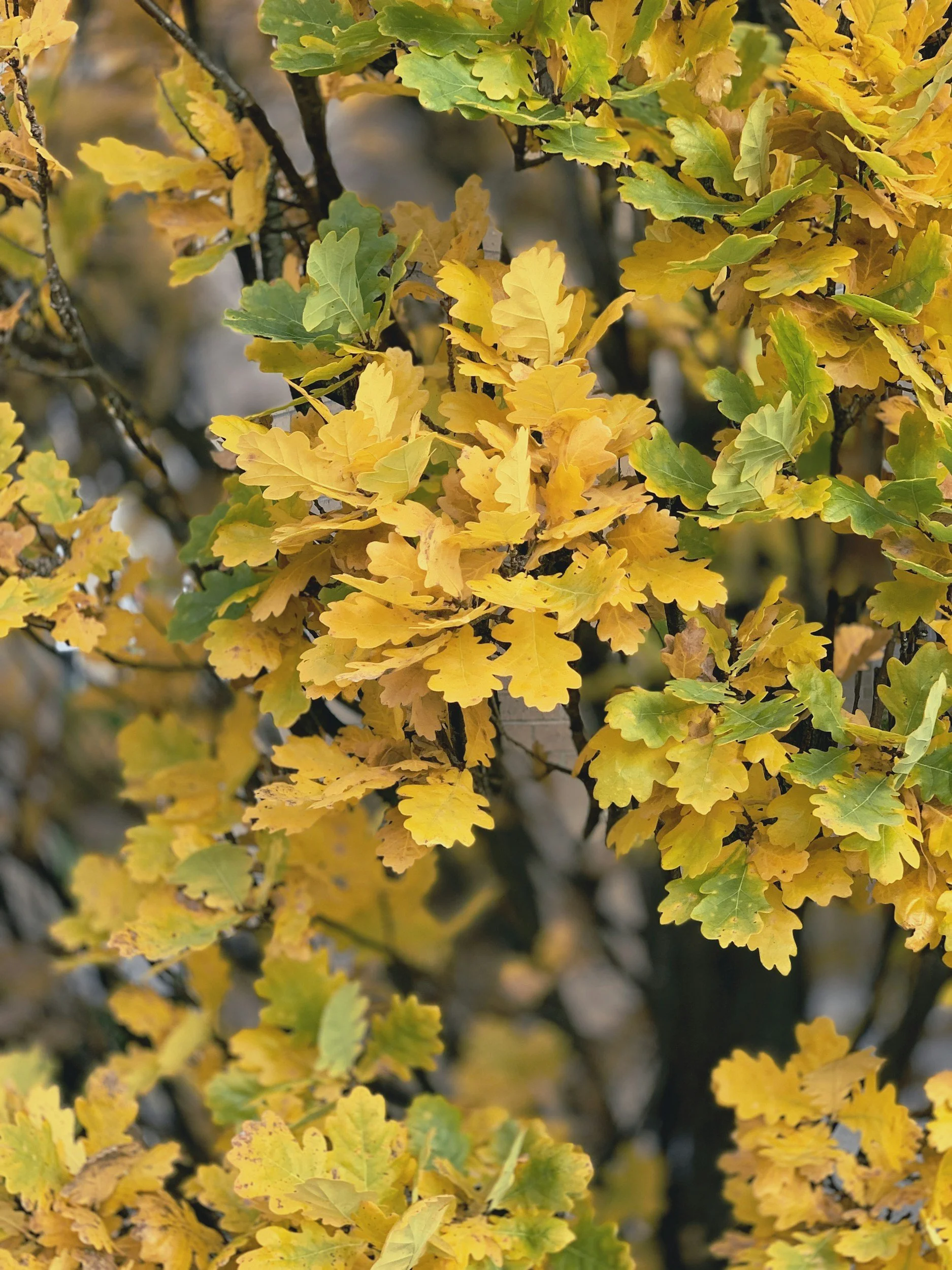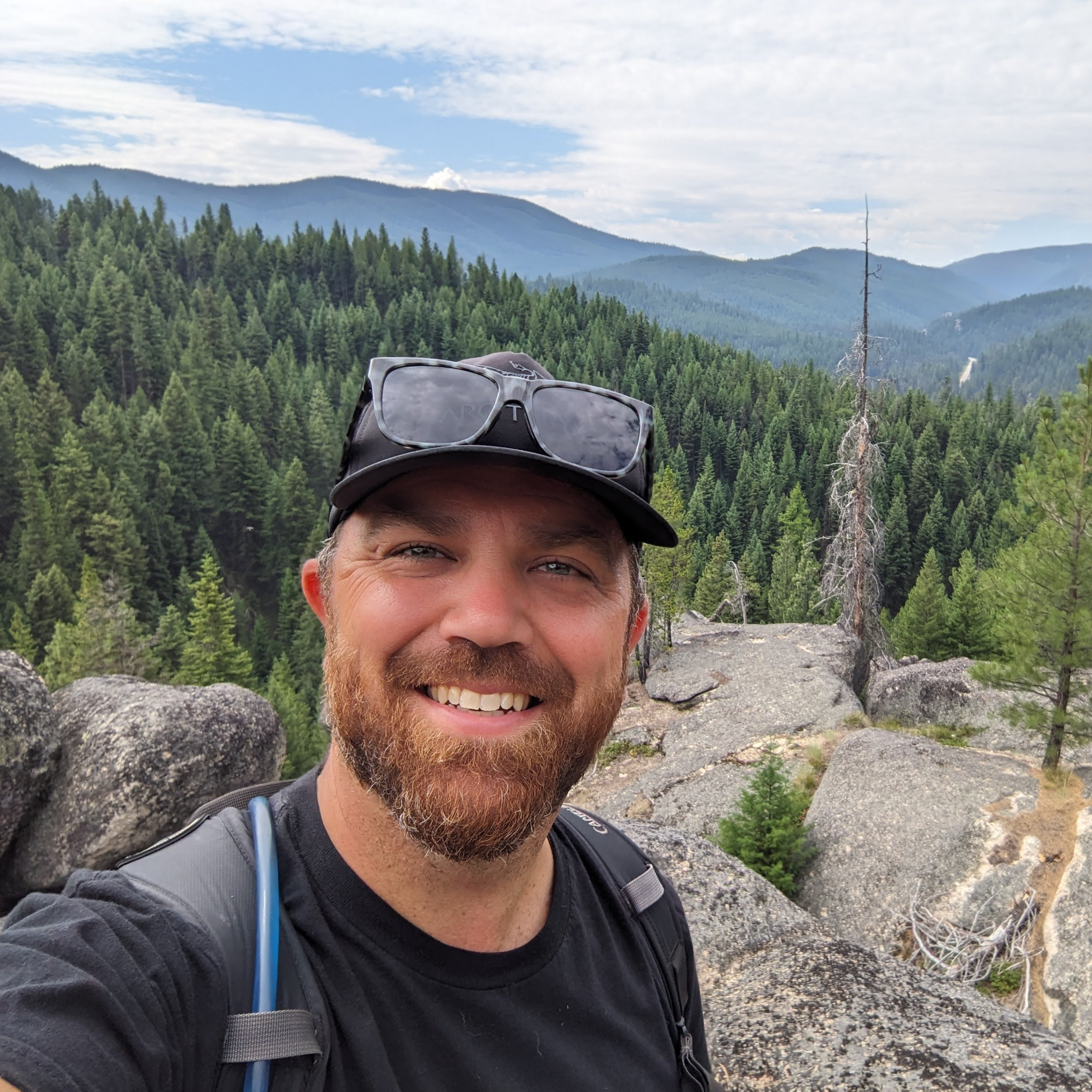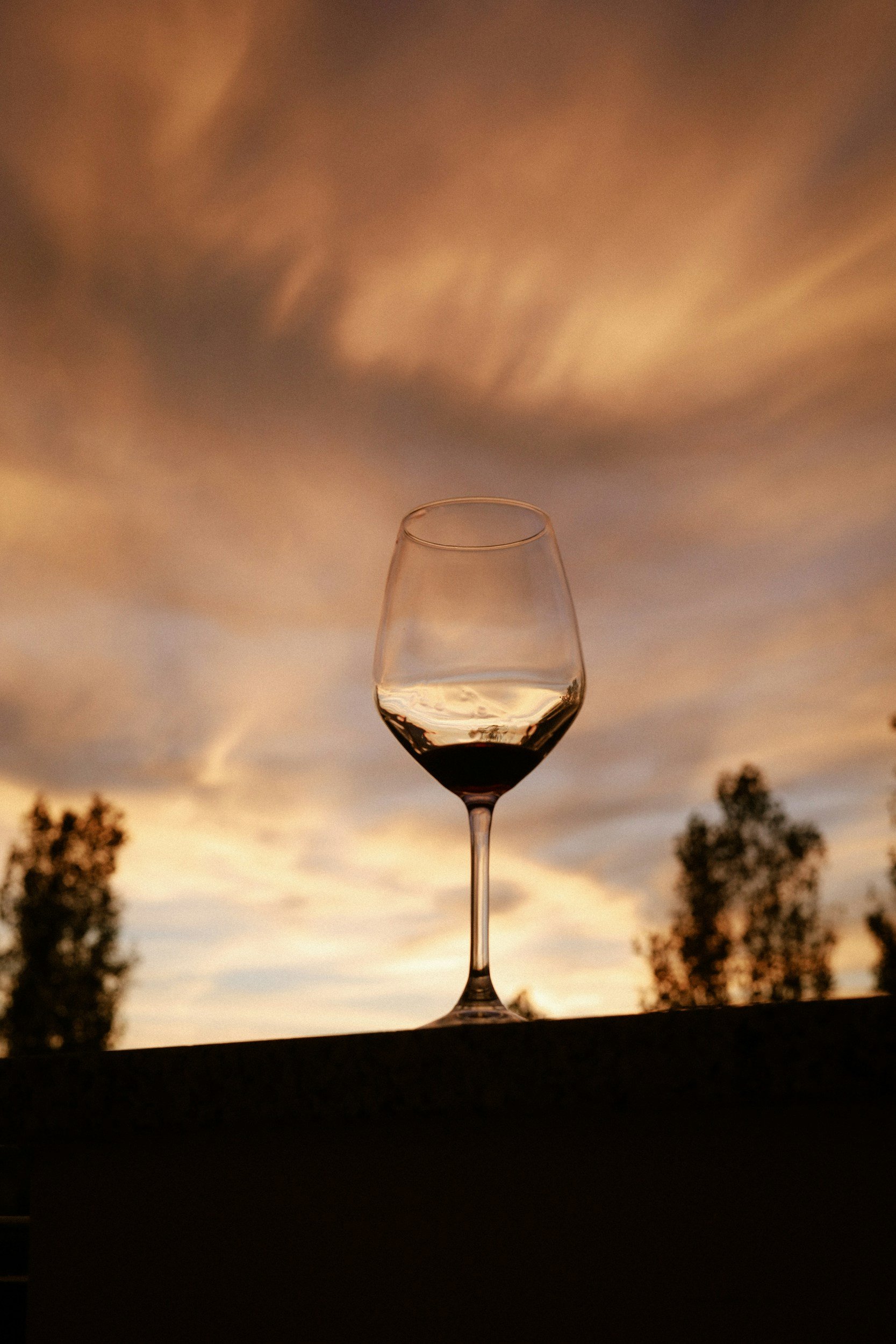2025 Biophilic Design Conference Programme Sessions - Join us at the conference to learn and share best practice, cutting edge new research and inspire each other across disciplines and sectors. Together we can design a better world to live in. For people, for planet and for prosperity in every sense of the word...
As well as Keynotes, the rhythm of the conference will be a mix of mini TED type talk followed by panel discussion, or “in conversation” style debates, with ample opportunity to share your opinions with each other and ask questions.
8.30am Breakfast reception in the Library. Meet each other, share business contact details, chat to the suppliers and innovators on show in the exhibition area.
Opening Session
9.15 - We move into the Lecture Hall (the same rooms where the Suffragettes met) where the sessions will be live streamed across the Globe.
Throughout the day, the Biophilic Design Conference offers a series of sensory experiences across the event spaces. In the main conference area, generative biophilic soundscaping from Moodsonic accompanies the sessions. Even indoors, exposure to natural soundscapes can reduce stress and improve cognitive abilities.
These soundscapes are non-looping, as humans tend to find repetitive or uniform auditory patterns fatiguing and unpleasant, and prefer natural, gentle variation. Evolving throughout the day, the sounds are designed support calmness and sustained attention, helping people make the most of the rich conference content.
9.20 Opening Remarks from Dr Vanessa Champion, founder of The Journal of Biophilic Design, and The Biophilic Design Conference.
Moodsonic Soundscape Experience - Early morning – English Meadow soundscape This soundscape provides stimulation with lively natural cues including British birdsong, insects and a freshwater stream. These sounds can elevate mood and alertness while reducing stress – preparing the brain for focus and connection as the day begins.
Keynote sponsor
Thank you to Ecophon for sponsoring all our Keynote speakers.
Opening Keynote - Steve Nygren
9.30 Steve Nygren, former Chair of the Biophilic Institute and founder of Serenbe the Biophilic Wellness Community, will be sharing how he set up the Biophilic community and how we can all Start in our own Backyard. Followed by a Q&A. Steve will also be signing copies of his book in the break.
Start in our own Backyard - Visionary placemaker Steve Nygren chronicles the rise of Serenbe, a pioneering model of biophilic living outside Atlanta, and charts a path for others wishing to challenge the status quo, embrace optimism, and reinvent their communities…and themselves.
The Science Interlude - Dr Sally Augustin
9.50 Leading Environmental Psychologist, Dr Sally Augustin will share with us insights on the Science behind Biophilic Design, with her talk: Brains, Bodies and Biophilic Design. Biophilic design elevates human mindsets and health, and these positive effects have been quantified by neuroscientists in research settings. The implications of biophilic design identified are impressive but cannot reasonably be anticipated in real world situations. A meta-like-analysis of neuroscience findings, however, establishes the probable effects of biophilic design on cognitive/professional performance in actual, used settings. Biophilic design’s links to physical health and mental wellbeing can also be addressed empirically. Information on the context-quantified implications of biophilic design move design discussions beyond cost as a determinant of use.
Keynote Session - Oliver Heath
10.05 Oliver will be speaking about: Creating an Ecosystem of Wellbeing. As spatial typologies and functions increasingly overlap, we have to step out of our siloed approaches to the creation of spaces that meet the needs of the diverse users that our buildings support. To realise spaces that are truly invested in the health & wellbeing of people & planet we need to create an ecosystem of wellbeing for every project – but breaking the mould is never easy. Oliver will discuss how his company’s biophilic design projects address these essential challenges through the lens of bio-based design.
The Biophilic City Sessions
10.20 Chaired by Joanna Yarrow
10.25 Nick Grayson, Former Climate Change, Sustainability and Green City Manager, Birmingham City Council - How to map cities to change where you're heading. Welcome to cities. We nearly all live in one. They are responsible for 75% of greenhouse gas emissions, and 75% of natural resource consumption; and return 80% of global GDP. Yet nation states and the UN COP’s are blind to them. Their current governance models fail to address these concerns. Learn why and how to change that, making climate and nature central to decision-makers. By taking a Biophilic Governance approach it’s possible to build organisational capacity. To change the narrative to one of hope and opportunity for citizens, partners and to attract new investors.
10.35 Rob Delius, Head of Sustainability, Stride Treglown - The city will see you now. Creating places for health and restoration. In 2019 a Hampton Court show garden was revealed called ‘The Forest Will See You Now.’ Conceived by landscape architect Michelle Brandon, it cleverly highlighted how nature can be our doctor, our medicine. What about the cities and places we live in, could they also have medicinal qualities? What if we completely rethought our public spaces and new developments so they restored us and made us healthy? And by doing so, ultimately reduced the burden on the NHS….
10.45 Luke Engleback - Biophilic design - part of the whole systems Landscape-Led Ecourbanism approach to creating Healthier Cities
10.55 Rob Gardner - A Tale of Two Futures: Building a Nature-Based Economy. Across Britain’s landscapes, water risk is cascading — too much, too little, too dirty — threatening homes, farms and prosperity. In the Evenlode catchment, a new biophilic mindset is turning this around. By restoring wetlands, re-wiggling rivers and regenerating soils, Nature becomes living infrastructure — protecting communities, improving food and water security, and enhancing wellbeing. This session explores how reconnecting design, ecology and economy through Nature-based solutions can create a resilient, prosperous future worth living in.
11.05 Q&A
Break - Networking & Book Signing 11.10 - in the Library. Walk through the Audio Visual Experience.
Book signing - Keynote Steve Nygren will be signing his books in the break.
Meet up, network with each other and speakers, plus make the most of the opportunity to learn about innovations from our exhibitors.
The Biophilic Health Sessions
11.30 Chaired and opened by Jeremy Myerson
Keynote - Tye Farrow
11.35 Constructing Health: How the Built Environment Enhances Your Mind’s Health. How do buildings make us feel? How can they make us feel better? Through research at the emerging intersection of neuroscience and architecture, Tye Farrow will explore how our mind, and its various sensory systems, interacts with our built environment to enhance or harm our health and well-being. Tye bridges the gap in knowledge between the therapeutic medical world and the design community to reveal how the intentional shaping of our environment can support our physical and neurological well-being, through recent discoveries in cognitive psychology (the science of the mind) and neuroscience (the science of the brain).
Soundscape experience: Late morning – Rippling Lake soundscape (accompanying the Biophilic Health Session) Low-intensity, rhythmic water movement encourages calmness and relaxation. Wave sounds have also been shown to sustain attention and mental clarity by providing gentle motion that supports focus without distraction.
Designing Health with Biophilic Design
11.50 Mathew Page, NHS - Rooted in Evidence – The Flourishing of Nature-Based Practice in Mental Health Services. Mathew will explore the longstanding relationship between nature connection and mental health care, and how this is being revitalised by a growing movement of patient and practitioner engagement. In the Avon and Wiltshire area, insights from being one of seven national Green Social Prescribing pilot sites are now being embedded across both community and hospital services. This includes innovative approaches such as the Kingfisher service, which will be featured elsewhere in the programme.
12.00 Emma Moody, NHS - The Kingfisher: Integrating Biophilic Design into Mental Health, Learning Disability, and Autism Care Settings // This talk explores the development of The Kingfisher in Bristol and demonstrates how biophilic design can be central to inpatient ward environments. It highlights the pivotal role of leadership in driving this initiative and considers how these principles can inspire future design approaches. The new unit is designed to support individuals with a treatable mental health condition who have a learning disability and autistic people.
12.10 Sumita Singha - Designing wellbeing through participation. Biophilic design offers health, environmental, and economic benefits for building occupants and urban environments. While humans might spend 80-90% of time indoors, having plants or even views or photos of nature can help to reaffirm this connection. However, wellbeing extends beyond this. It involves place-making using community, collaboration, disruption, and innovation.
12.20 Sarah Jordan, Centre of Sustainable Healthcare - From clinic to canopy – the need for nature in healthcare . This talk will explore the connection between nature and health and share the work of the NHS Forest – a CSH project working to get more greenspaces into healthcare settings. Hear how nature is being used to transform healthcare across the UK - from woodlands to sensory gardens - for the benefit of staff, patients and the wider community.
12.30 Jenna Mikus, Eudaimonia - When Nature Meets Purpose: Bridging Biophilic and Eudaimonic Design for Flourishing Futures. Drawing on Aristotelian philosophy and wellbeing science, this talk explores how eudaimonic design activates the principles of biophilic design—cultivating environments that prompt people to better connect with themselves, others, and their built and natural environments by becoming their best selves. Through research and real-world applications explored across typologies, demographics, and geographies, Dr Mikus will highlight how flourishing scholarship-guided design can catalyze our symbiotic relationship with the planet in praxis and in practice. The result: spaces that don’t just sustain life, but elevate it—for humans and nature alike.
12.40 Q&A
Bill Browning message
12.55 Bill Browning, Chair of the Biophilic Institute, and Catie Ryan from Terrapin Bright Green couldn’t be with us today, but they have kindly sent us a message.
LUNCH and NETWORKING - 13.00 - in the Library. The Networking continues over a buffet lunch. Why not also chose to participate in the Audio Visual experience or speak to any of our speakers. Network and explore all the inspiring exhibitors.
Moodsonic Soundscape Experience - Early afternoon – Monsoon Focus soundscape After lunch, an enveloping soundscape with a slow Indian tanpura drone adds calm continuity, with low, harmonic tones that help the body relax and supports the afternoon’s learning. Steady rainfall provides stability that helps focus, while distant thunder adds occasional soft fascination.
Urban Nature
14.00 Alex Mayer MP will open the session.
14.05 Adrian Wong, SUGi - Biodiversity & Belonging: why wild urban spaces matter. Every citizen deserves access to thriving, biodiverse nature. SUGi is a model of urban renewal rooted in ownership, pride, and shared responsibility. We transform urban spaces through hyper-local pocket forests. From climate resilience to improving mental health, we’ll explore how wild urban spaces and nature connectedness can restore our sense of belonging — and how this, in turn, supports biodiversity and human well-being. SUGi is a story of hope: living proof that when nature returns, so does health, connection, and resilience.
14.15 Ludo Pittie - Financing Nature in Cities, sharing his expertise on landscape and urban design and integrating natural capital, nature-based solution, stewardship, nature finance and social value.
14.25 Natasha Reid - Compassionate Places and Biophilic Design in policy and practice: A case study of implementing innovation, sharing her practice’s work implementing Biophilic Design approaches to shape places for human health, social wellbeing and ecological sustainability together. The talk will focus on a case study of new planning and design standards for a London borough, integrating Life-Centric Design approaches and NeuroArchitecture. Findings from a Public Health academic evaluation will be shared, and how this case study can inform policy for other areas, the London Plan, and national policy, as well as international efforts.
14.35 Q&A
E.O.Wilson Biodiversity Foundation
14.40 Brooks Bonner (Recorded) - Biophilia in Action: The E.O. Wilson Biodiversity Foundation and the Half-Earth Project. Rooted in E.O. Wilson’s idea of biophilia—our innate connection to life—the Half-Earth Project brings science, design, and storytelling together to protect the diversity of life on Earth. This talk highlights how the Foundation translates Wilson’s vision into action through innovative mapping, education, and community partnerships.
Biophilic Greening for Schools, Home and Community
14.45 Kimberley Tryba will be talking about The Green Dividend: How Biophilic Design Pays Off in Cities, exploring the economic power of biophilic design in cities, showing how integrating nature into streets, buildings, and infrastructure drives measurable returns—higher retail spending, property value uplift, lower operating costs, and stronger community resilience. Using international examples from London and New York, participants learn how policy, design, and operations intersect to make greening a viable investment strategy. The key takeaway: treat nature as infrastructure—planned, funded, and managed for long-term economic and social gain.
14.55 Clare Bowman will be sharing insights on Nature-Based Solutions for Schools, including their guidance and real-world case studies on integrating nature-based solutions within school environments. This session will explore the benefits of applying the London Plan Urban Greening Factor Tool and developing a campus-wide estates nature based vision to deliver sustainable, viable, and wellbeing-focused outcomes.
15.05 Adam White and Andrée Davies, will be sharing the stage celebrating Rewilding Childhood. Designing Nature Play for the Next Generation sharing insights from two decades of designing nature play landscapes that reconnect children with the natural world. Their work helped shape the UK’s largest-ever investment in outdoor play, championing design that moves beyond standard equipment to embrace nature, creativity, and community engagement. Drawing on research, policy, lived experience, and real case studies, they show how engagement in biophilic design can foster ownership, tackle nature-deficit disorder, and create playful, inclusive spaces that nurture wellbeing, imagination, and belonging.
15.20 Poone Yazdanpanah - The Room Without a Roof: A Biophilic Worldview from Within shares findings from Poone Yazdanpanah’s fieldwork on the traditional Iranian Miān-Sarā — the open sky courtyard at the heart of the home. Her research reveals two worldviews in biophilic design: one where nature serves human comfort, and another where humans live in rhythm with nature. Rooted in cultural, climatic, and spiritual insight, the talk invites designers to move beyond bringing nature indoors toward creating places that breathe and evolve with the living world.
Break - Networking 15.30 - grab a coffee, and speak to any of our city speakers gathering around the Biophilic Pharmacy. Network and explore all the inspiring exhibitors.
BIID Panel - Anna Whitehead Prize for Sustainability
This panel kindly supported by BIID
Chaired by former President of BIID, Matt Freeman
16.00 - A curated panel of BIID practitioners working with Biophilic Design who were shortlisted for the Anna Whitehead Prize, which is awarded by BIID to the best achievement in sustainable interior design.
16.05 Elena Monserrate
16.10 Jennifer Hamilton
16.15 Nina Woodcroft
16.20 Discussion / Q&A
Moodsonic Soundscape Experience - Late afternoon – Forest Canopy soundscape (accompanying the Sensory Experience Session) Natural movement from wind, rustling leaves, and birdsong brings gentle stimulation and life to counteract energy or attention waning later in the day, providing a fresh, energising close to the day’s discussions.
The Late Afternoon Sensory Experience…
Big Debate and closing session sponsor
Thank you to Miller Knoll for kindly sponsoring our session and Big Debate.
Biophilic Sensory Design
Kindly sponsored by MillerKnoll
4.30 Chaired by Mark Catchlove Director – Insight and Strategy Services - MillerKnoll Global Research & Planning
4.35 Ulysse Dormoy CEO of Atrium- Light & Life, a Circular Concept, From an Unintended Horticulturalist. Our modern life is alien to our physiology and our indoor lifestyle has taken us away from the natural world. Our continued quest for convenience has driven us towards creating an ultra-processed world and the break from the full solar spectrum and from plant life is not only totally unnatural to us, it may actually be affecting our long-term health and wellbeing. How can we create the built environment not only to do no harm, but to enhance human health and wellbeing?
4.45 Frankie Boyle, Artist, Creative Director, Speaker - The Subconscious Language of Light: How Environments Speak to Human Behaviour. Experiential artist Frankie Boyle explores biophilic design through the lens of light and human behaviour. Drawing on neuroscience and neuroaesthetics, she examines how environments communicate with our subconscious, how light, texture, and spatial rhythm influence emotional and physiological states. Frankie reveals how ten billion years of evolutionary coding shape our sensory perception, and how tuning into these primal languages within built spaces can transform wellbeing, reconnecting us to nature, ourselves, and the quiet intelligence of light.
4.55 Fran Board, Marketing Director Moodsonic - From Ideas to Action: Biophilic Soundscaping in Practice. Biophilic design is evolving into ever-more immersive, multi-sensory experiences that connect people and place. This talk explores real-world projects where designers are integrating biophilic sound and other responsive technologies to create spaces that feel more restorative and adapt to people’s changing needs.
5.00 Tatsuya Matsuoka a visiting scholar form Japan, at Nottingham Trent University (NTU)- How do we really experience Biophilic Design? This talk explores how cutting-edge wearable data is revealing our unique physiological and psychological responses to Biophilic Design in the workplace.
5.10 Julian Treasure acclaimed author and TED speaker with over 160 million views, will be sharing how sound affects not just human but all life (recording).
5.15 Simon Corbey, CEO, ASBP (Association of Sustainable Building Products) - What is a healthy product? The multiple impacts of product selection are gaining importance. At the Alliance for Sustainable Building Products, we focus on embodied carbon, which in the UK is still unregulated, but we also look at the wider implications of product ingredients and the impacts from the manufacturing processes. I will talk about construction products and PFAS, toxicity and fire, biodiversity and research that suggests that conventional paints are our most significant source of plastics. And what about VOCs...is there such a thing as VOC free?
5.25 Will Knight - renowned design industry figure who held senior roles at London Design Festival, 100% Design, Clerkenwell Design Week, and served as Director of Dubai Design Week, he is currently the Director of Awards for Better Future and the Co-founder of Material Matters, the global platform for material intelligence for architecture and design. - Biomaterials Making a Noise. Material Matters, the leading platform for material intelligence in architecture and design, uses storytelling to amplify the potential of materials. Through its podcast, trade fairs, and annual conference, the platform connects innovation with industry and mainstream media, revealing the narratives that shape the adoption of new materials and methods. This presentation explores how communication, curation, and engagement can help biomaterials evolve from experimental concepts to central elements in contemporary design and architecture.
The Big Debate - The Future of Biophilic Design
5.35 Wrapping up the day will be an open floor debate. What will be the impact Biophilic Design will make on the future health and wellbeing of people and planet, how can Biophilic Design mitigate climate change, what can we each do?
We will be inviting our speakers to take part and you in the audience to add your voices not just in the room but also to upload your thoughts to the Biophilic Portal which will be open via a QR code for you to share thoughts.
Followed by Final Word and wrapping up by Dr Vanessa Champion.
Drinks Reception
6pm We’ll make our back through to the Library for a final networking session, chance to swap business cards, Linkedin info and cement the new friendships you have found today. Like a forest, every community, successful business, and any movement for change, it takes an ecosystem of parts to be effective. Know that each and everyone of you is making a difference.
Thank you for being part of this wonderful movement for the health and wellbeing of ALL life on this planet.
